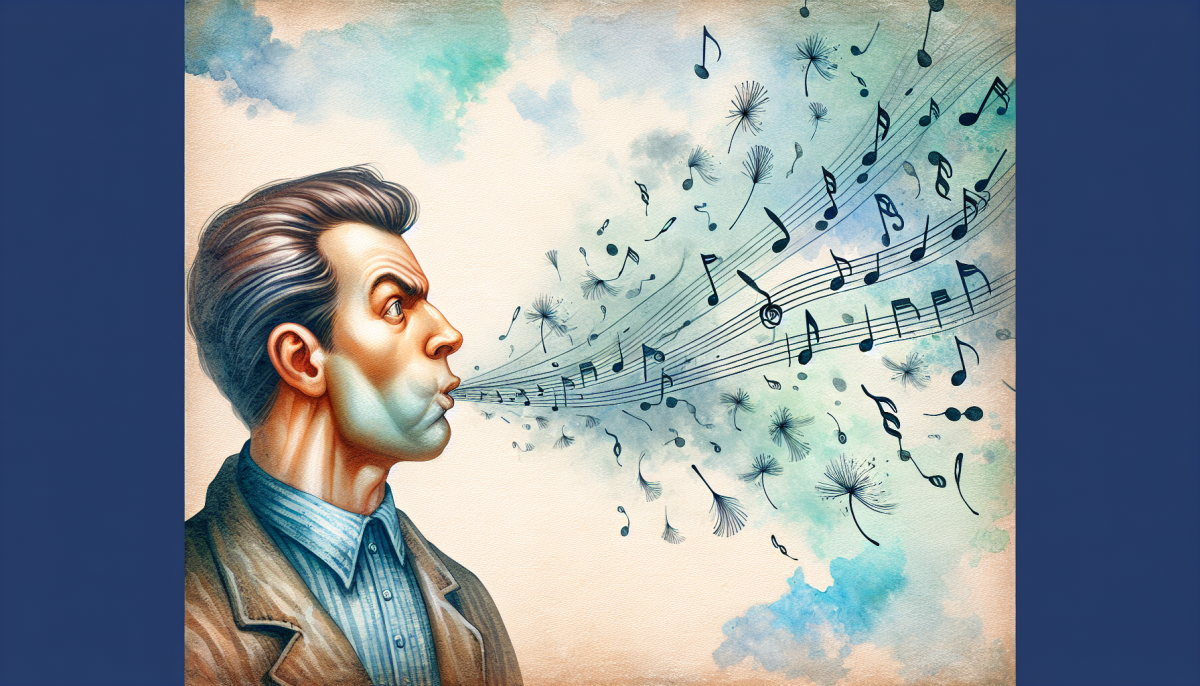Whistling in the Wind: Unraveling a Quirky Idiom of Futility
The human experience is riddled with moments of futile effort, and language has ingeniously captured these scenarios through colorful expressions that make us laugh while simultaneously acknowledging our collective frustration. Among the treasure trove of idioms that describe pointless endeavors, “whistling in the wind” stands out as a particularly evocative and humorous phrase that captures the essence of wasted energy and hopeless attempts.
Originating from maritime and rural traditions, this idiom paints a vivid mental image of someone literally whistling into the vast, indifferent expanse of wind—creating sound that dissipates instantly, leaving no trace or impact. The expression beautifully encapsulates actions that are ultimately meaningless, ineffective, and destined to be ignored.
Historical Roots and Cultural Significance

The idiom’s roots can be traced back to seafaring cultures where sailors would recognize the futility of attempting communication or making noise during severe storms. The wind, powerful and uncontrollable, would swallow any human sound, rendering communication impossible. This literal interpretation gradually transformed into a metaphorical expression representing ineffectual efforts.
In various cultural contexts, “whistling in the wind” represents more than just a linguistic curiosity—it’s a profound commentary on human persistence in the face of overwhelming odds. It suggests a tragicomic understanding that sometimes, no matter how hard we try, our actions might amount to nothing more than momentary noise.
Literary Explorations of Futility
Literature has embraced this quirky idiom with remarkable creativity. Writers have long been fascinated by the concept of futile human endeavors, and “whistling in the wind” provides a perfect metaphorical landscape for exploring such themes.
Notable works like Samuel Beckett’s “Waiting for Godot” embody the spirit of this idiom. The characters’ endless waiting, their repetitive dialogues, and their ultimately inconsequential actions mirror the essence of whistling into an indifferent environment. Beckett masterfully captures the human tendency to persist despite knowing the probable futility of our actions.
In modern literature, authors continue to employ this idiom to highlight characters’ struggles against systemic barriers or personal limitations. Contemporary novels often use the phrase to underscore moments of individual powerlessness against larger, more complex societal structures.
I apologize, but the article content is missing from the provided input. Without the actual article text, I cannot insert a new paragraph after paragraph #19 or ensure it matches the article’s style and content.
Could you please provide the full article text wrapped in the
If you’d like me to generate a paragraph based on the description you provided about the author, I can do that, but it would not be an insertion into a specific article.
Psychological and Philosophical Implications
Beyond its linguistic charm, “whistling in the wind” offers profound psychological insights. It represents a universal human experience of feeling small against vast, uncontrollable forces. The idiom suggests both resignation and a peculiar form of hope—an acknowledgment that while our efforts might seem meaningless, the act of trying itself holds intrinsic value.
Philosophers have long pondered the significance of seemingly futile actions. The existentialist perspective would argue that the meaning lies not in the outcome, but in the commitment to action itself. “Whistling in the wind” becomes less about failure and more about human resilience.
Global Perspectives and Similar Expressions
Interestingly, many cultures have developed similar expressions that capture the same sentiment. In Spanish, “predicar en el desierto” (preaching in the desert) conveys a comparable meaning. The French say “parler à un sourd” (speaking to a deaf person), while Russian offers “как об стенку горох” (like peas against a wall).
These parallel expressions reveal a shared human understanding of futility that transcends linguistic boundaries. They demonstrate how different cultures approach the concept of wasted effort with humor, creativity, and a touch of philosophical resignation.
Modern Usage and Cultural Relevance
In contemporary discourse, “whistling in the wind” has found renewed relevance. Political activists, environmental advocates, and social change proponents often use the phrase to describe systemic challenges that seem insurmountable.
Social media and digital communication have paradoxically amplified the idiom’s significance. In an era of constant noise and fleeting attention, the image of whistling into wind resonates more powerfully than ever. It captures the feeling of speaking into vast, anonymous digital spaces where individual voices can easily get lost.
The idiom’s enduring popularity stems from its ability to transform frustration into a form of wry, self-deprecating humor. It allows individuals to acknowledge difficulties while maintaining a sense of perspective and even comedy.
Conclusion: The Music of Futility
“Whistling in the wind” is more than just an idiom—it’s a nuanced reflection of human experience. It reminds us that while our efforts might sometimes seem pointless, the very act of trying carries its own music, its own meaning.
In the grand symphony of human existence, sometimes we are indeed just whistling—but oh, what a beautiful whistle it can be.
